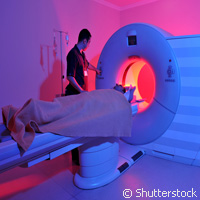VIGOR++ tackles Crohn's disease with advanced monitoring tool
An EU-funded team of researchers will develop a multi-scale, tailor-made gastrointestinal (GI) tract model that will help doctors better detect Crohn's disease and provide an accurate index of the disease's severity. Backed with almost EUR 3 million in funding under the 'Information and communications technologies' (ICT) Theme of the EU's Seventh Framework Programme (FP7), the VIGOR++ ('Virtual gastrointestinal tract') project brings together seven partners from Germany, the Netherlands, Switzerland and the UK. More than 1 million people in Europe suffer from inflammatory bowel disease (IBD), a term that covers a group of disorders in which the intestines become inflamed, the VIGOR++ partners say. Crohn's disease, which affects some 700,000 Europeans, is one such disorder. Determining the type of treatment a person diagnosed with Crohn's disease needs is crucial. Most patients undergo a colonoscopy in combination with an analysis of biopsy samples. But experts believe this method is invasive, good prep work is required for the bowel and results may be inconclusive. This triggers much angst for patients. Led by Delft University of Technology (TU Delft) in the Netherlands, the VIGOR++ partners believe their innovative approach will result in fewer colonoscopies performed in the future. A colonoscopy is performed with a flexible tube fitted with a camera that is passed into the large intestine, causing much discomfort to patients. Doctors use laxatives to clear the patient's large intestine at the onset. The VIGOR++ partners say doctors use magnetic resonance imaging (MRI) scans as an alternative to monitor the course of the disease and to determine how it is responding to treatment. VIGOR++ will offer the medical world an objective, quantitative method for assessing these MRI scans. It's a win-win situation both for doctors and patients - more accurate analyses with less discomfort. 'The assessment of the MRI scans is not very objective at present,' explains Professor Jaap Stoker of the University of Amsterdam Academic Medical Centre (AMC), a VIGOR++ partner. 'Objective MRI assessment techniques will enable us to use MRI to better monitor the disease activity for Crohn's disease. This may among others have a beneficial effect on the side effects and costs resulting from long-term medicine use to treat the disease.' For the most part, increased and decreased disease activity affects Crohn's patients. It's important that the stage of the disease is evaluated regularly to ensure effective treatment. 'We are going to investigate objective methods to quantitatively determine the severity of the disease using MRI scans,' says project leader Dr Frans Vos from TU Delft and AMC. 'MRI images make it possible to measure the thickness of the intestinal wall, the degree of vascularisation and to distinguish the various layers of the intestine. These are all indicators of the extent to which Crohn's disease is active. All that is required is the intravenous administration of a contrast medium.' He goes on to say that VIGOR++ is essentially an ICT project. 'After all, the basis is statistical pattern recognition,' Dr Vos explains. 'For that purpose one of the first things we need to do is analyse large quantities of MRI images.'For more information, please visit: Delft University of Technology (TU Delft):http://home.tudelft.nl/en/ICT research under FP7:http://cordis.europa.eu/fp7/ict/
Countries
Switzerland, Germany, Netherlands, United Kingdom



